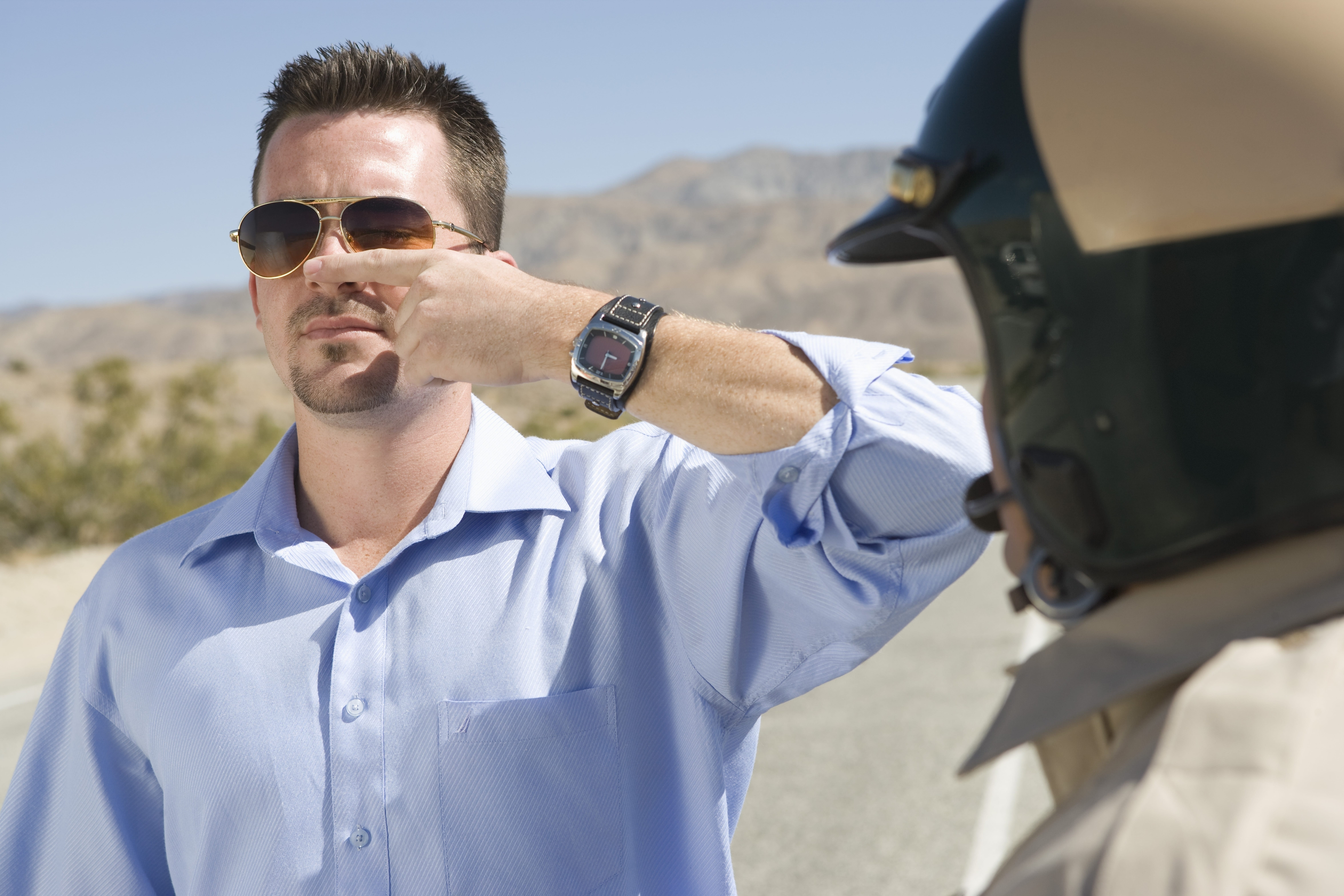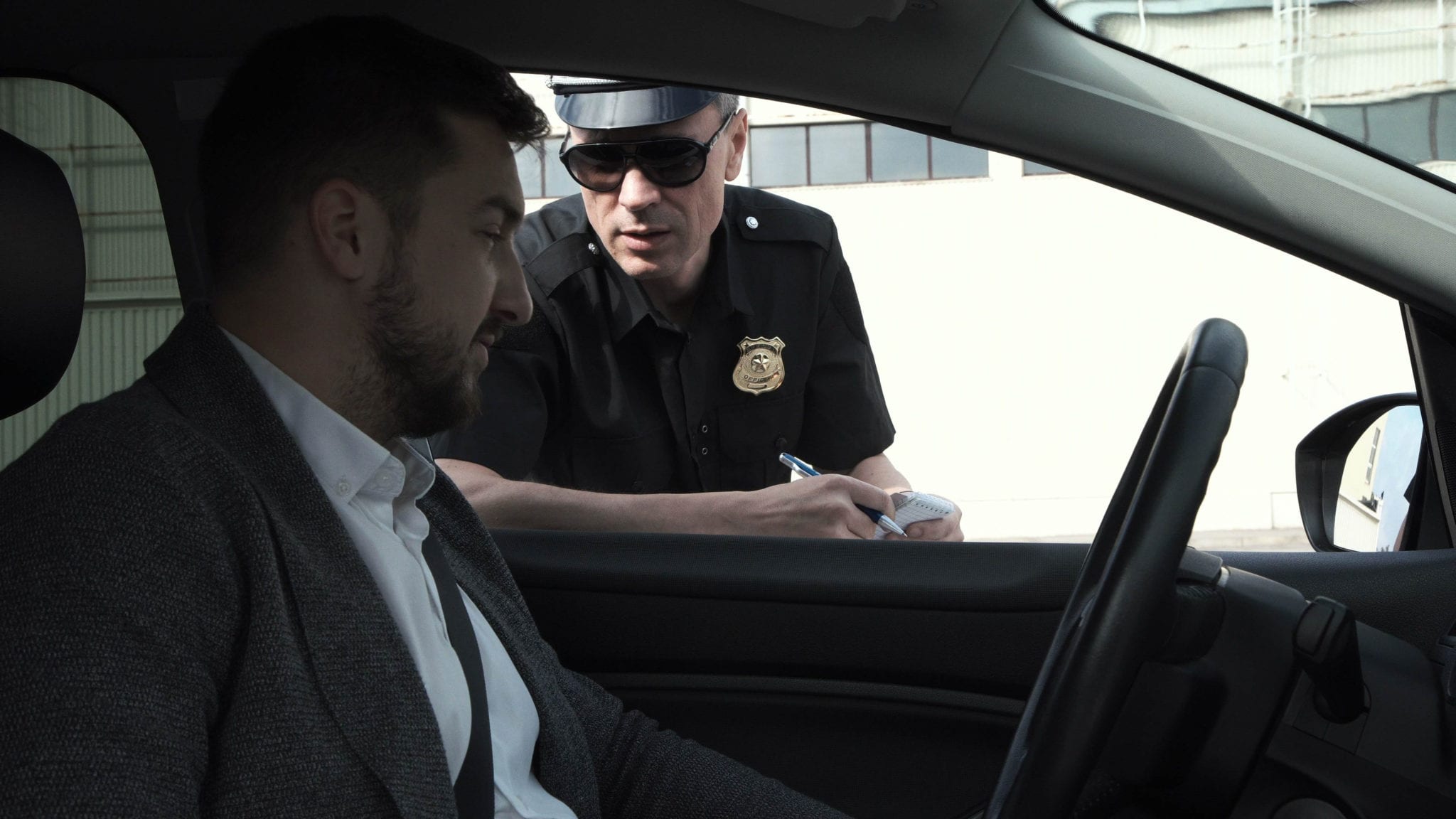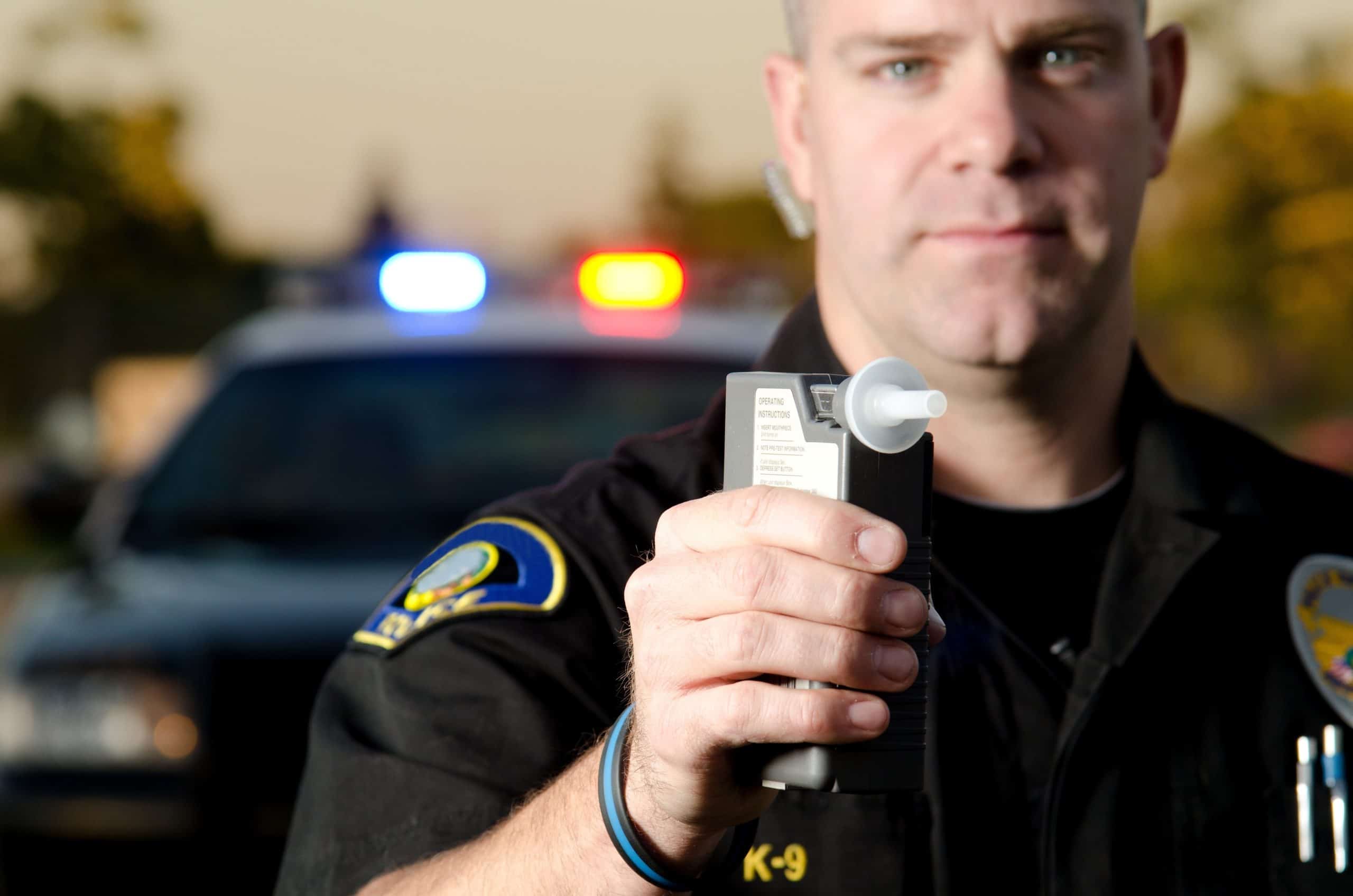
When a police officer pulls you over for suspected drunk driving, they will likely ask you step out of the car to perform one or more field sobriety tests. These are intended to test your physical and cognitive function… and give the police officer probable cause to believe you are driving drunk.
They seem simple enough, but field sobriety tests are often not as straightforward as they appear. Studies have shown that these tests are not accurate at gauging how drunk a person is – many sober people fail them as well. As mentioned above, for the most part field sobriety tests are simply a means for the officer to gain probable cause to make a DUI arrest.
When most of us are stopped by police, we make every effort to be cooperative in an attempt to get on the officer’s good side. However, you are not required by law to take field sobriety tests, and it is often not in your best interest to do so. It’s therefore very important to be aware of your rights if you’re stopped for suspected drunk driving.
Below we’re going to detail exactly which tests you have the right to refuse, and also discuss tests that you should not refuse.
A Word on Probable Cause in Minnesota
In our state, the police must have a reasonable suspicion not only that you have been drinking, but that you are impaired or over the 0.08% blood alcohol limit before they can ask you to take field sobriety tests. Unless you are underage, it is not illegal to drink and drive in Minnesota – however, it is illegal to drive when you are over the legal limit or impaired.
This distinction is subtle but ultimately very important, as the officer will have to prove that there was reason to believe that you were over the legal limit or impaired before they ask you to submit to field sobriety tests. If this cannot be proven, they have no right to get you out of the car, and it’s possible that your case could be thrown out altogether.

Breaking Down Minnesota Field Sobriety Testing
Minnesota police generally administer one or more of the following four field sobriety tests:
- The horizontal gaze nystagmus test to look for jerking of your eyes.
- The one leg stand test to look for defects in balance.
- The walk and turn to look for defects in gait.
- The portable (preliminary) breath test, which is the handheld breath test administered on the side of the road or in the squad car.
To reiterate, studies have shown that behavioral tests are not accurate in gauging impairment – even sober people frequently fail them.
Furthermore, regardless of how well you do on behavioral testing, you will almost always be asked to blow into a portable breathalyzer as well. Unfortunately, portable breathalyzer tests are woefully inaccurate, often overestimating blood alcohol content.
Police are well aware of these shortcomings, but they use field sobriety tests to gain probable cause to make a DUI arrest.
What If Minnesotans Refuse Roadside Field Sobriety Tests?
Importantly, you are not required by law to submit to field sobriety testing. If you feel that there is any possibility you might be anywhere near the legal limit, it is likely in your best interest to refuse these tests.
What happens if you refuse? The police then have the right to arrest you, and will most likely do so. Once you are arrested, you will be required to submit to chemical blood alcohol testing.
Your initial reaction to this is most likely “then why would I refuse?” Understandable question.
Here’s why we recommend that you refuse: if chemical blood alcohol testing reveals that you’re under the legal limit, it doesn’t matter that you refused field sobriety testing. If you’re over the legal limit, all you’ve done by submitting to field testing is made your case harder to win in court by providing the prosecution with additional data they can point to as “evidence” that you were intoxicated.
Chemical Blood Alcohol Content Testing Is Required in Minnesota

After a DUI arrest, you will be required to submit to chemical blood alcohol testing, which is a blood or urine test, or a more definitive breath test.
Refusing this test is a crime, but you can still do it, and you have the right to speak to an attorney within a reasonable time before you make this decision. Regardless of your decision, we advise that you make every effort to get in touch with a lawyer before submitting to chemical testing. Although it will almost always be in your best interest to avoid the additional charge of refusing chemical testing, an attorney can advise you of how exactly to proceed in your specific situation.
About the Author:
Christopher Keyser is a Minneapolis-based criminal and DWI defense attorney known for fighting aggressively for his clients and utilizing innovative tactics to get the most positive results. He has been featured in numerous media outlets due to the breadth and depth of his knowledge, and recognized as a Minnesota Super Lawyers Rising Star (2014–2015), a Top 100 Trial Lawyer (2013–2015), and a Top 40 Under 40 Attorney (2013–2015).





